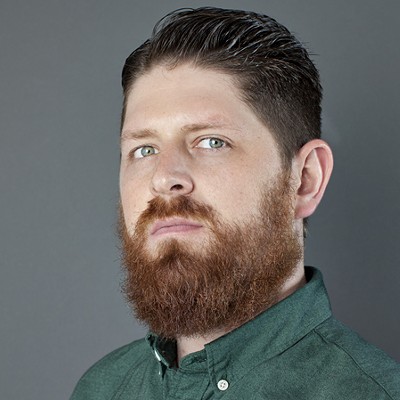After producing several documentary films (and a few shorts) over the past seven years, Bahamian filmmaker Kareem Mortimer has made the leap to feature-length fiction with Children of God, which he describes as "a love story between a black Bahamian and a white Bahamian."
And he has no intention of looking back anytime soon, having just completed his second feature film, Wind Jammers. "Documentaries were really, really important to me. I will probably return to that form at some time. But it won't be in the next five years. I've always wanted to do narrative," he says.
New Times: You shot some of your films in Miami. What's your connection to this city?
Kareem Mortimer: I moved to Miami when I was 17 to go to film school at the Miami International School of Art & Design. And I lived there until I was 22. So in early 2003, I left and I came back to the Bahamas. You know, I kind of became a man in Miami and found my voice and got a chance to experiment with my craft.
Children of God has been described as "a scathing examination of the underlying hatred for gays rampant in Caribbean societies." Is that accurate?
Well, it really is a love story. I think scathing is a bit strong. It's about connection, celebrating what's vulnerable about ourselves, and looking at the humanity in us all, as opposed to having this overt agenda of speaking about how awful it may be for homosexuals in the Caribbean.
Were there any instances of real-life homophobia that inspired this film?
The film takes place in a time when there were protests in the Bahamas against gay cruises that were coming here. I was living here at the time. And it was crazy. They had all these talk shows, and people were saying really hateful things on the radio. The language was very dangerous.
It seems to be a common perception that homophobia is culturally ingrained in Caribbean societies. Do you disagree with that assumption?
No. I agree with that.
Is it something tied directly to religion?
I believe that religion plays a huge part. But that's a very difficult question. Religion doesn't teach you to be homophobic. In the film, I talk about religion, but I don't say that religion is the cause. Homosexuality is present in everybody's life, and we try to cover it in so many ways.
The reason I ask that question about religion is there's a secretly gay pastor in the film.
There are two pastors in the film. First there's the gay pastor, Ralph Mackie, who's the husband of Lena, the main female character in the film. Then there's Reverend Richie, who's questioning his religious beliefs, but he's not gay. These two people play against each other. Reverend Richie is a guy who's not really bothered by homosexuals and sees their humanity. Meanwhile, the secretly closeted pastor speaks very vehemently against gays.
So Ralph Mackie's homophobia and fear is stoked by self-denial?
Yeah. The film is about fear and hypocrisy. I think as human beings we try to hide what's vulnerable about ourselves. But, you know, what's vulnerable about ourselves is usually also what's beautiful. And when we try to hide that, we turn ourselves into all sorts of horrible things.










